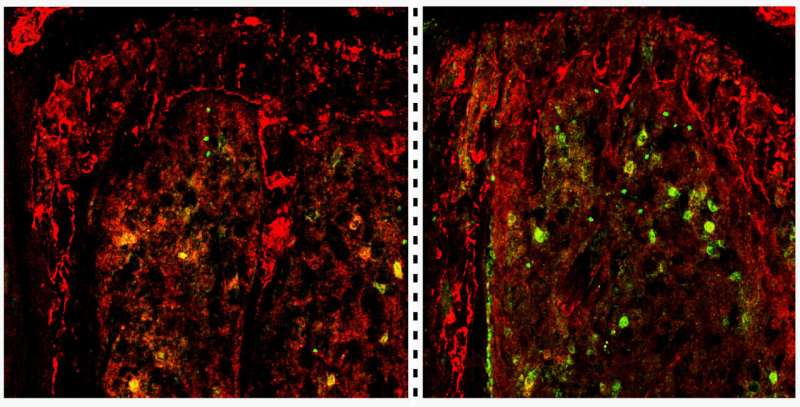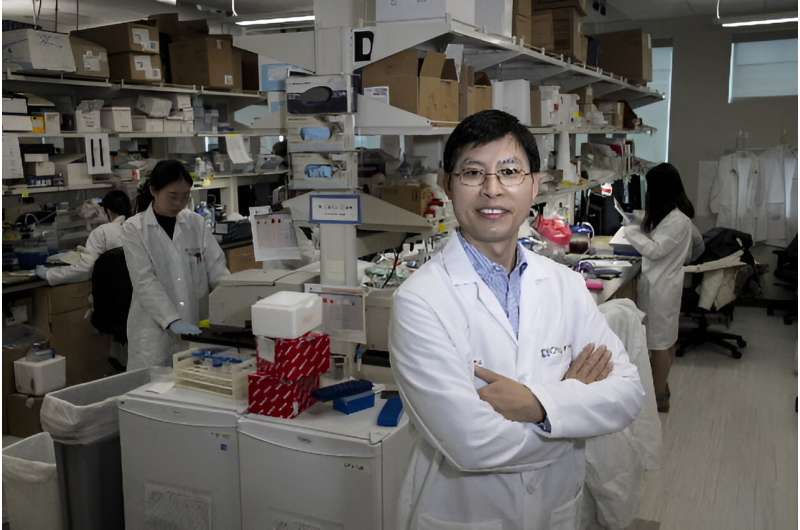
Scientists at City of Hope, one of the largest cancer research and treatment organizations in the United States, have identified how low levels of the TET2 gene fuel the rapid growth of acute myeloid leukemia in animal models. Cell Stem Cell recently published the study.
A team led by Jianjun Chen, Ph.D., the Simms/Mann Family Foundation Chair in Systems Biology at Beckman Research Institute of City of Hope, found that TET2 deficiency sets off a cascade of biochemical changes that enhance the bone marrow cancer’s ability to spread. These changes include:
- Driving the movement of malignant stem cells from the bloodstream to the bone marrow region where they originated. This home microenvironment, called a niche, protects the cells’ survival and ability to divide and self-replicate.
- Increasing the expression of a protein called TSPAN13 that signals leukemia stem cells to travel back to the bone marrow niche
- Leading to the buildup of a methylated form of the RNA base cytosine that enhances TSPAN13 messenger RNA’s stability, resulting in the increased expression of TSPAN13 protein
- Activating a signaling pathway called the TSPAN13/CXCR4 axis that increases malignant stem cells’ return (i.e., homing) to the bone marrow niche and self-replication, thereby leading to the rapid development of leukemia.
By expanding understanding of the multiple ways that TET2 influences the development of acute myeloid leukemia, the discovery points to new potential therapeutic targets for treating the disease.
“This study provides novel insights into the cellular and molecular mechanisms underlying the development of acute myeloid leukemia,” Chen said. “Our findings highlight the therapeutic potential of reactivating TET2 signaling in patients with TET2 mutations or transcriptional suppression. Equally exciting, this strategy could be applied to other types of cancer that feature TET2 deficiency.”

Acute myeloid leukemia is distinguished by the rapid division and spread of immature leukemia stem cells. More than half of patients relapse, and the five-year survival rate is only 30%. Figuring out how to destroy these cells is crucial to effectively treating the disease.
TET2 deficiency cooperates with leukemia-related oncoproteins resulting from chromosomal abnormalities or gene mutations to drive the development of leukemia and enhance malignant stem cells’ ability to divide and spread. Until now, however, the cellular and molecular mechanisms underlying these processes have remained murky.
In analyzing data from the Cancer Genome Atlas, Chen and his colleagues found that lower expression or mutation of TET2 was associated with a poor prognosis and shorter overall survival rates for patients. Compared to healthy control subjects, TET2 expression was significantly suppressed in acute myeloid leukemia patients. This led the team to investigate the clinical relevance of TET2 in the development of the disease.
More information:
Yangchan Li et al, TET2-mediated mRNA demethylation regulates leukemia stem cell homing and self-renewal, Cell Stem Cell (2023). DOI: 10.1016/j.stem.2023.07.001
Journal information:
Cell Stem Cell
Source: Read Full Article
